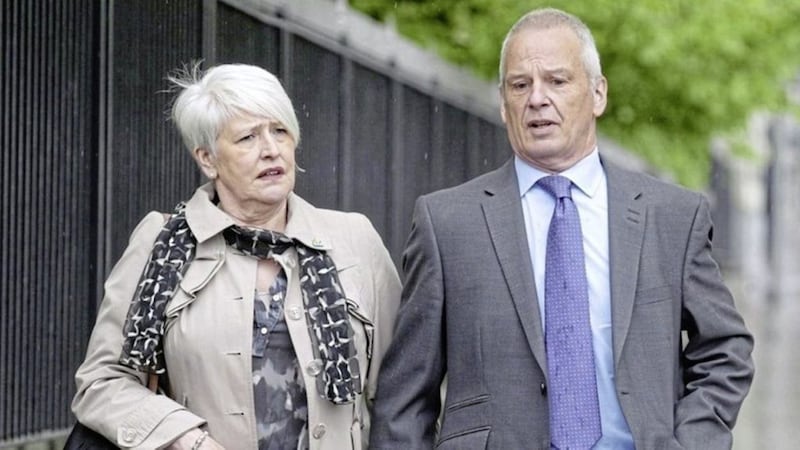THE father of a child whose death was examined by the Hyponatraemia Inquiry has welcomed comments from a leading health expert who said lives could have been saved.
Alan Roberts, who lost his nine year-old daughter Claire said remarks by Professor Gabriel Scally "reinforce what we as parents have been saying since 2004".
Prof Scally said more could have been done by the Department of Health and that there had been a "remarkable account of lies, deceit and cover-up, of negligence and of secrecy and deliberate obstruction".
The Hyponatraemia Inquiry examined the deaths of five children, Claire Roberts, Adam Strain, Raychel Ferguson, Conor Mitchell and Lucy Crawford, between 1995 and 2003.
They died from the condition, which occurs when the level of sodium in the blood becomes abnormally low.
The inquiry investigated the role mismanagement played in the children's deaths, as well as the way the deaths were handled by health officials and whether some of the deaths could have been prevented.
A report by John O'Hara QC said the deaths of four of the children were preventable and caused by medical negligence and some doctors had engaged in cover-ups following the death.
Prof Scally, an adviser to the chair of the 14-year-long inquiry, yesterday criticised how the health service was managed and the pace of response to the inquiry's 96 recommendations, which were laid out to prevent a similar situation happening in the future.
He said a "toxic" relationship existed among some health professionals in the north.
"I have seen it happen before but only in individual institutions or amongst individual teams," he told the BBC.
"Here it seems to have been a widespread pattern almost across the province."
He added: "The Department of Health could have, if they had been acting properly... saved the lives of some of these children.
"The Department of Health is not the health service, it is a department of state. It is a department to serve the people and serving the people means holding the NHS to account.
"That's what they should have been doing and it doesn't look to me like they did that."
Prof Scally also said he believed the north's Chief Medical Officer Dr Michael McBride - who was medical director at the Belfast Health and Social Care Trust between 2002 and 2006 and involved in the trust's response to the death of Claire Roberts - should inform the public about how the system is changing.
In a statement, Mr Roberts welcomed the comments by Prof Scally.
"His comments in relation to the findings of Justice O'Hara's report into the shocking gross negligence and cover up of our daughter's death are scathing, clear and direct," he said.
"They reinforce what we as parents have been saying since 2004."
Mr Roberts added: "It has now been four months since the publication of the O'Hara report.
"In the absence of a minister for Health, it is essential that the Permanent Secretary for the Department of Health, the Chief Medical Officer for Northern Ireland and the Belfast Trust stop dragging their heels and take decisive action regarding their responsibilities, accountabilities and involvement in what we believe to be the biggest and most complicit scandal ever to hit the Health Service of Northern Ireland."
The Department of Health said Dr McBride had worked to implement many of the recommendations from the Hyponatraemia Inquiry.
"It should also be noted that Dr McBride's leadership has helped deliver many of the important clinical and governance improvements acknowledged in Mr Justice O'Hara's report."








